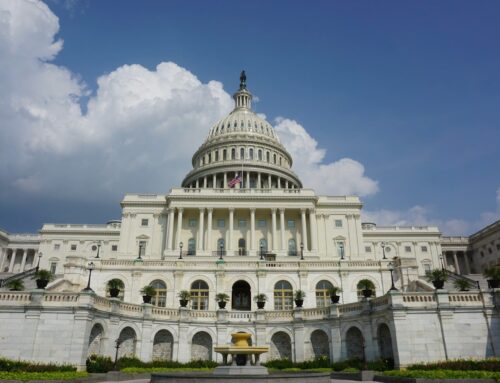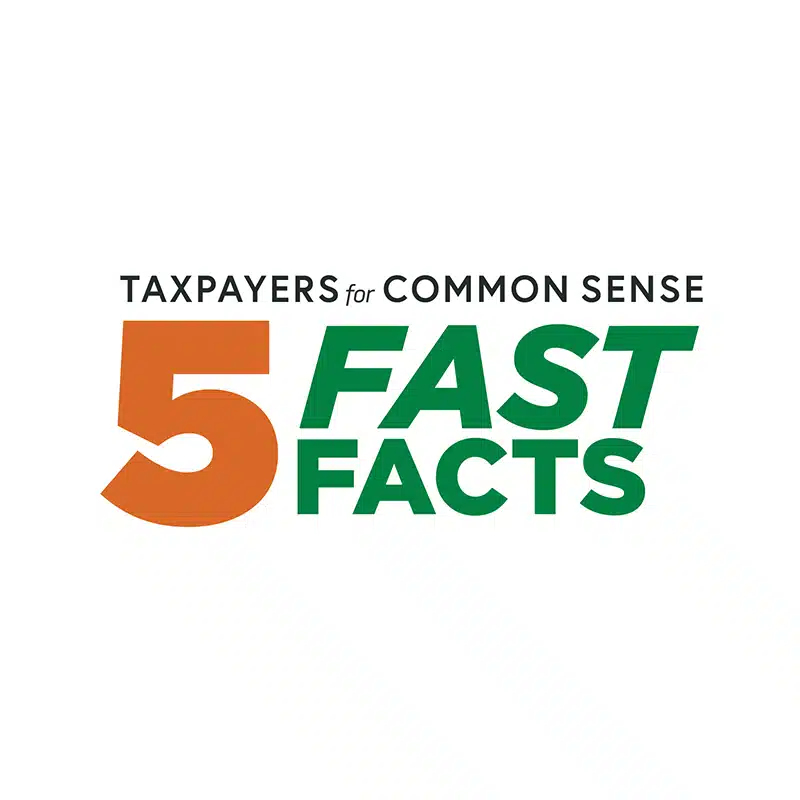When lawmakers debate the role of government, they usually wax on about the biggest and most expensive pieces of the federal budget pie: Defense programs, Social Security and Medicare. But the most silent budget killer of them all if often left out of the conversation: interest payment on U.S. Government debt.
Anybody who has ever dealt with an interest payment on a credit card knows the perils of getting too far into debt. In fact, the financial management of the federal government would make any greedy credit card executive salivate.
In FY2006, the federal government spent a whopping $406 billion just paying interest on the then $8.5 trillion federal debt. Since then, we’ve added more than $400 billion in debt. According to Treasury Secretary Paulson, Congress needs to increase the debt limit from $8.923 trillion by the start of October or else the country is at risk of defaulting on our creditors. We don’t want foreign governments to show up our doorsteps with their repo men.
Congress is working on legislation to jack up the debt limit by $850 billion, breaking the $9 trillion threshold. Guess it’s good to be number one, but rather it be golf or basketball. Just our debt is larger than the combined Gross Domestic Products of Japan and Germany – the countries with the second and third largest economies in the world. Our interest payments alone would be the 17th largest county GDP, bigger than the entire economies of Turkey, Sweden, or Saudi Arabia.
The Senate will have to vote on the debt limit increase in the next few weeks. Many years ago the House adopted the so-called Gephardt rule, named for former Rep. Dick Gephardt (D-MO) – which enables the chamber to automatically increase the debt limit when they adopt the budget. The Senate isn’t so lucky. The Finance Committee quietly passed the increase in the debt limit last week, but Sen. Tom Coburn (R-OK) has promised to force a debate and vote on the debt limit increase on the floor. Clearly this debate is important for members of Congress to remember that there are serious repercussions to the recent federal spending binge.
Everybody knows the Government can’t default on the debt, but this is an opportunity for a public debate about how to restore fiscal sanity, put the budget in balance and stop wasting money. Despite Vice President Cheney’s reported statement that Reagan proved deficits don’t matter, when you are paying $400 billion a year to finance them, they really do.
The ironic thing is that in 1981, during President Reagan’s first year in office, the federal debt first crossed the $1 trillion threshold. Since then it has rocketed up. When President Bush took office in 2001, the debt stood at just over $5.6 trillion. The nation’s credit card has been used and abused.
The growth in interest payments should concern everyone – left and right, Republican and Democrat. After balancing the budget, every bit of debt reduction will mean less money thrown away to interest – money that could be used for larger cuts in capital gains tax or more money for health and social programs depending on what Congress and the President prioritize. But first things first, the Senate needs to deal with the debt limit and then begin a robust debate on the federal budget. We cannot afford to forget about this problem and continue borrowing until the next debt limit check is due, when the debt will be approaching $10 trillion.
For more information, contact Steve Ellis at (202)-546-8500 x126 or steve@taxpayer.net











Get Social